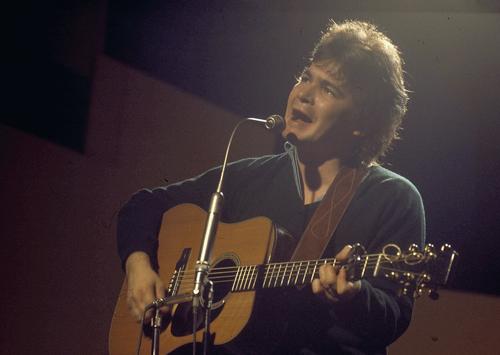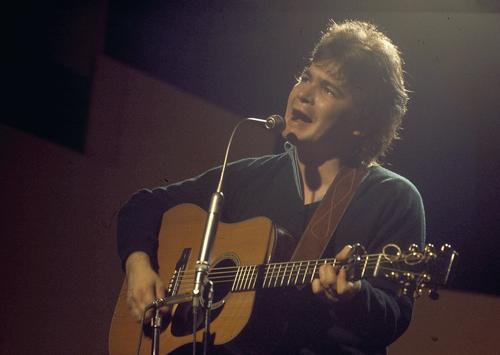Listen to New Voices on Studs Terkel our partnership with 826CHI-here! Read the Story
Showing 1 - 15 of 19 results
-
Terkel comments and presents musical performance of Pierre Bensusan
Jun. 11, 1979 Presenting music with Pierre Bensusan.
-
Studs Terkel comments and presents on the life and work of George Gershwin
Feb. 6, 1979 Terkel comments and presents musical performance of Gershwin program.
-
Son House discusses his life and career as a blues musician
Apr. 19, 1965 Son House discusses his life and career as a preacher and blues musician. He talks about his family, his religious background as a preacher, and his recent comeback after disappearing from music scene in 1943. He performs several songs during the interview, which have been removed due to copyright.
-
Ollie Gilbert and Jimmie Driftwood discuss music ; part 2
May. 25, 1964 Ollie Gilbert, folk musician, and Jimmie Driftwood, folk songwriter and musician, discuss and folk music. They also discuss instruments such as banjos, guitars, and musical bows. The two musicians also talk about how music evolves over time and as it is passed through generations.
-
Ollie Gilbert and Jimmie Driftwood discuss music ; part 1
May. 25, 1964 Ollie Gilbert, folk musician, and Jimmie Driftwood, folk songwriter and musician, discuss music including how Gilbert's family has passed down music through the generations.
-
Martin Gottfried discusses his book "Broadway Musicals"
Nov. 15, 1979 Martin Gottfried discusses his book "Broadway Musicals" and the history of the musicals by evaluating the different big name composers, lyricists, and directors of Broadway.
-
John Prine discusses songwriting and growing up in Southern Illinois
1972 They briefly discuss coal mining in Appalachia, specifically Blackey Kentucky. Includes an interview with Joe Begley a coal miner from Blackey, Kentucky.
-
John Prine discusses his life and his formation in music
1975 The opening song is a rebroadcast from a previous recording with Studs Terkel. John Prine talks about his family history in Paradise, Kentucky and when he was born and raised in Maywood, Illinois (Chicago Greater Area). Prine is known for humorous lyrics about love, life, and current events, as well as serious songs with social commentary, or which recollect melancholy tales from his life. All the songs are played in the studio from his albums "John Prine" and "Diamonds in the Rough"
-
Humorist and author, Abe Burrows discusses his career
Aug. 1980 As previously presented in Studs Terkel's weekly Almanac program, Abe Burrows, talks about how he got into writing. After the Depression, Burrows explained he had no true goal in mind other than that of simply surviving. Typing out material on a typewriter was when Burrows realized he was good at both writing and comedy.
-
Harry Chapin discusses his career as a writer and singer and reflects on the stories behind his music
Mar. 31, 1975 Studs interviews Harry Chapin about his music and career. They discuss Chapin’s style of writing songs. Chapin describes some of his songs such as “Cats In the Cradle,” “Sniper,” “WOLD,” and “Mr. Tanner.” He stresses that his songs tell stories and often are influenced by real-life events. For example, “30,000 Bananas Pounds of Bananas” came from a trip he took on a Greyhound bus through Pennsylvania where there was a truck accident.
-
E.Y. (Yip) Harburg discusses songwriting and "Rhymes for the Irreverent"; part 2
Jan. 1966 E.Y. (Yip) Harburg explains how songwriting needs to use and elevate street language to be successful, why he likes rainbows, and what creators of art and music owe the world. He also reads from his book "Rhymes for the Irreverent". Music is played from Finian's Rainbow: "When the Idle Poor Become the Idle Rich" and "How Are Things in Glocca Morra?", original Broadway cast recording. Part 2. Music has been removed from this recording for copyright reasons.





